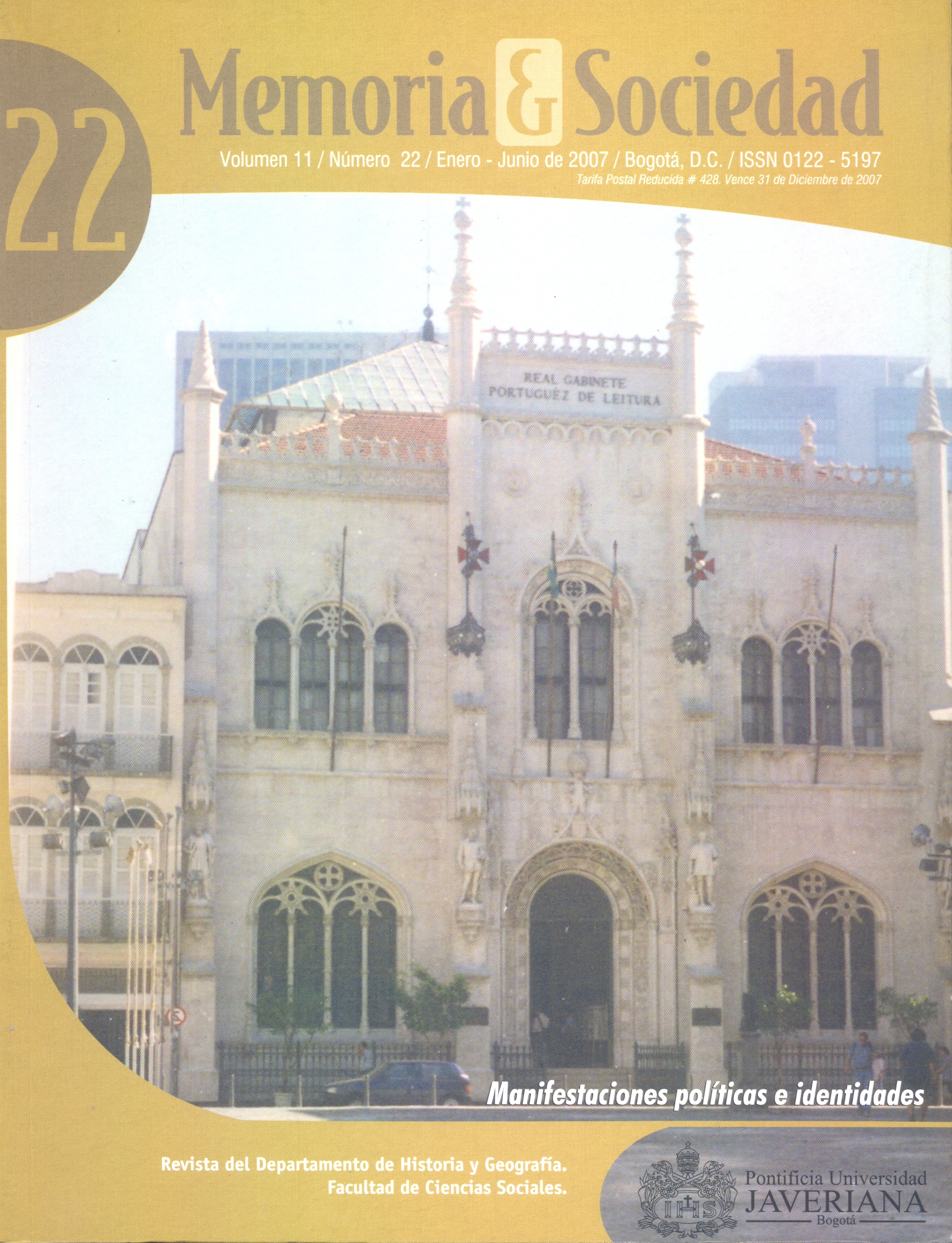Abstract
The aim of this article is to analyse the figure of the foreigner in the Argentina of the Centenary from the point of view of Ricardo Rojas. This author introduces the problem of the configuration of the national identity and of the State through the representation of “other”. The myth of the “melting pot”, in the thought of Ricardo Rojas, works as a strategy of assimilation- exclusion of the immigrant. On the one hand, the foreigner (in a political sense) appears as an “unexpected enemy” and on other hand, he shows an ability to go through a cultural assimilation in a way that brings a new argentine race. This article shows the atmosphere of the emergency of the “cultural nationalism” and the democracy at the beginning of the20th century in the Argentina.The journal Memoria y Sociedad is registered under a Creative Commons Attribution 4.0 International Public License. Thus, this work may be reproduced, distributed, and publicly shared in digital format, as long as the names of the authors and Pontificia Universidad Javeriana are acknowledged. Others are allowed to quote, adapt, transform, auto-archive, republish, and create based on this material, for any purpose (even commercial ones), provided the authorship is duly acknowledged, a link to the original work is provided, and it is specified if changes have been made. Pontificia Universidad Javeriana does not hold the rights of published works and the authors are solely responsible for the contents of their works; they keep the moral, intellectual, privacy, and publicity rights.
Approving the intervention of the work (review, copy-editing, translation, layout) and the following outreach, are granted through an use license and not through an assignment of rights. This means the journal and Pontificia Universidad Javeriana cannot be held responsible for any ethical malpractice by the authors. As a consequence of the protection granted by the use license, the journal is not required to publish recantations or modify information already published, unless the errata stems from the editorial management process. Publishing contents in this journal does not generate royalties for contributors.

